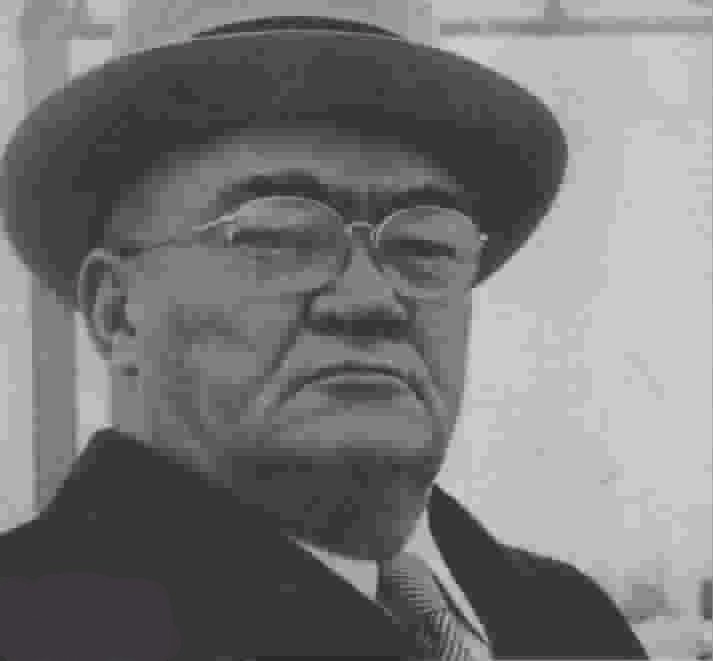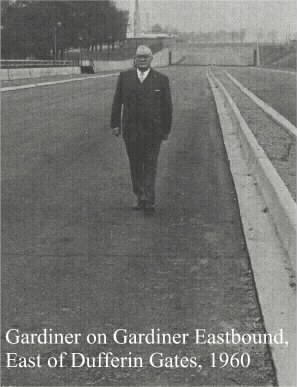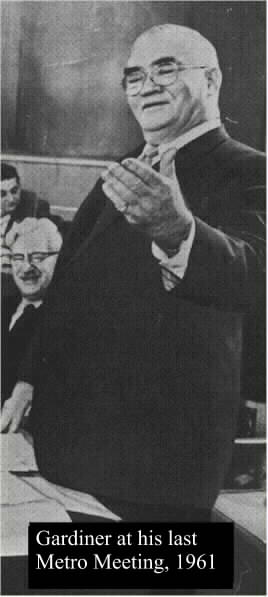
Frederick G. Gardiner, Metro's First and Greatest Chairman
by Tim G.

This page is a tribute to Frederick G. Gardiner, Metro's first and greatest chairman. There is a great deal of talk about Metro, amalgamation, and the upcoming Megacity. Mike Harris' Bill 103, the City of Toronto Act, is a realization of a dream for many, including Big Daddy, as Gardiner was affectionately called.
Today's main opponents of amalgamation are the mayors and former mayors of Metro. These so called leaders' vision, charisma, intelligence, dedication, fortitude, and leadership all pale in comparison to a man that seemingly single-handedly made Toronto what it is today.
Times may have changed from the great building days of 1950s and 1960s, but Metro has never seen a greater era. It was during this time that Gardiner conceived and built the great roads, like the Don Valley Parkway and Gardiner Expressway, the great water systems, including sewage treatment plants, the great transit system, and the large scale social housing projects. It was in 1953 that Metro was born, an achievement of the Tory Frost government, a federation to oversee the expansion of the City of Toronto and its surrounding towns. Gardiner was appointed and later elected to run this new Metro, and its success is due in tremendous part to Gardiner's ferocious tenacity, intelligence, and Protestant work ethic. Gardiner did more in 8 years than subsequent Chairmen and councillours have done in 36 years. Why? The reason is leaders today have no vision, and Metro wasn't amalgamated when it needed to be in 1967. This fatal error, rubber stamped by an expensive, made-in-Canada Royal Commission, caused Metro's borders to freeze, thus preventing it from growing and capturing the sprawling growth that has since taken place.
Instead, we have impoverished inner cities, namely York and East York, an introverted inner City of Toronto, a rapidly decaying Etobicoke and Scarborough, both huge losers to Mississauga and Markham respectively, and a tale of two cities in North York -- East of Bathurst and West of Bathurst (rich and poor).

From the time Gardiner retired from Metro to today, relatively little has been accomplished. Metro has become bigger, more bureaucratic, more bankrupt, perhaps more democratic, and achieved substantially less than was envisioned by Big Daddy. No new major roads have been built, the subway has been extended into no-where, no major infrastructure has been constructed. Metro has actually been stagnating, bleeding outward towards the now prosperous outer regions. Its internal boroughs have turned into cities, who busy themselves with their own local interests, fighting Metro, fighting each other, fighting the province, and fighting the outer regions' magnetic pull. They've fought development, fought tax reform, fought cars and trucks, driven out industry, funded large rocks in parks and fringe theatre groups, and generally squandered a glorious opportunity to make Metro a giant. Metro needed to be one in 1967, so it could move beyond its external boundaries and properly manage and integrate the surrounding areas. Instead, these areas are merely joined at the hip, leaches sucking out the life of a now-dying Metro. Transit isn't integrated, taxes aren't integrated, and these outer cities themselves now have regional governments that conflict with each other.

Gardiner ran Metro like a business. This may have been criticised as undemocratic, but Gardiner was in fact one who listened and gave great authority to men of vision who surrounded him. His great vision and power of persuasion help win opponents over -- he himself was often surprised at the lack of oppostion and powerful argument.
...to be completed
April 09, 2000